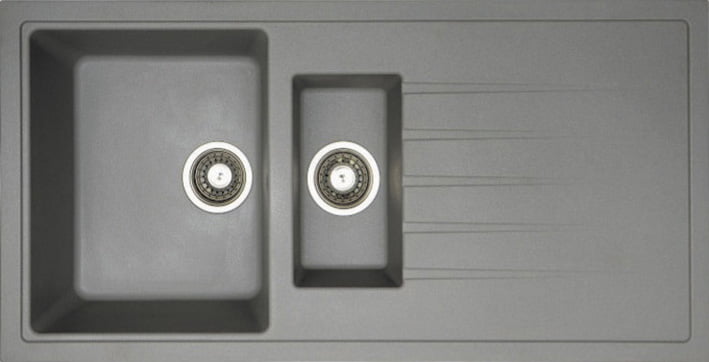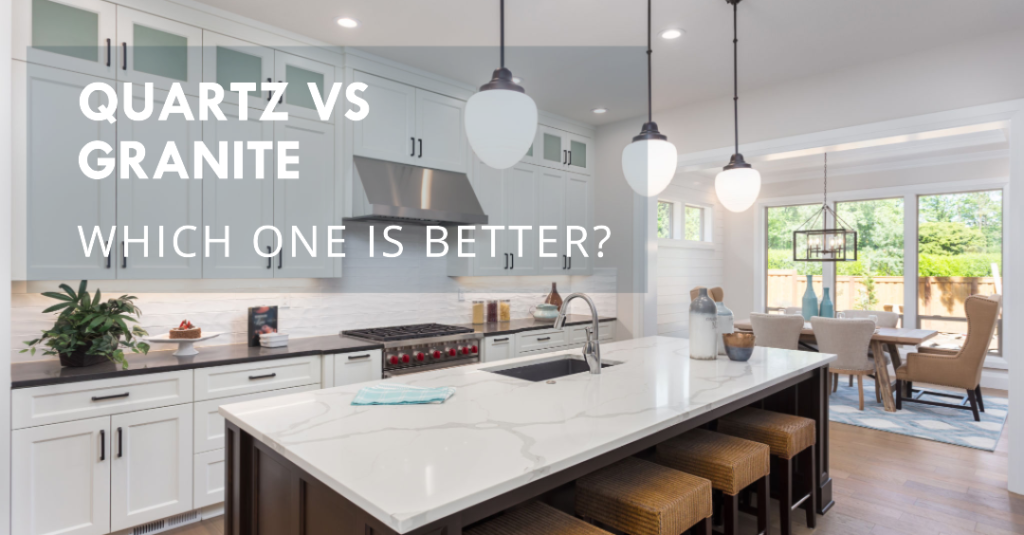Quartz vs Granite Worktops: Which One is Better for Your Kitchen?
Introduction
If you’re planning a kitchen renovation or simply looking to replace your existing worktops, you may be wondering whether to choose quartz or granite. Both materials are popular options for kitchen worktops, and each has its own unique set of advantages and characteristics. In this article, we’ll explore the key differences between quartz and granite worktops, considering factors such as appearance, durability, maintenance, and cost. By the end of this guide, you should have a clearer understanding of which material is best suited for your kitchen needs and preferences.
Is Quartz Worktop Better Than Granite?
If you’re short on time and looking for a quick answer, the choice between quartz and granite worktops ultimately comes down to your personal preferences and kitchen requirements.
Granite offers natural beauty and high heat resistance, making it an attractive option for those who value unique patterns and can commit to regular sealing for stain prevention. Quartz, on the other hand, boasts a more consistent appearance, requires minimal maintenance, and provides superior stain resistance. While not as heat resistant as granite, quartz is still a durable and practical choice for busy kitchens. Consider your desired aesthetic, maintenance preferences, and budget to make the best decision for your kitchen renovation.
Appearance and Design Options
One of the most significant factors to consider when choosing a worktop material is its appearance. After all, your kitchen worktops are a prominent feature that will greatly influence the overall aesthetic of your space.
Granite
Granite is a natural stone, meaning each slab is unique and boasts its own pattern of colours and veining. This natural beauty can create a striking and luxurious look for your kitchen. Granite is available in a wide range of colours, from deep blacks and rich browns to lighter shades of grey, white, and even blue.
Quartz
Quartz worktops, on the other hand, are engineered from a combination of natural quartz, resins, and pigments. This manufacturing process allows for a more consistent pattern and colour throughout the material. Quartz worktops are available in an extensive variety of colours and designs, including options that mimic the appearance of natural stone or feature a more modern, uniform look.
Both quartz and granite offer numerous design possibilities, so it ultimately comes down to your personal style and preferences when selecting the ideal worktop material for your kitchen.
Durability and Maintenance
When it comes to kitchen worktops, durability and ease of maintenance are crucial factors to consider. You want a material that can withstand daily use without showing signs of wear and tear.
Granite
Granite is a strong and hard-wearing natural stone, resistant to chipping and scratching. However, it is slightly porous, which means it can absorb liquids and potentially stain if not sealed properly. To maintain its appearance and prevent staining, granite worktops typically require periodic sealing, depending on the specific type of granite and the sealer used.
Quartz
Quartz worktops are known for their exceptional durability, thanks to their engineered composition. They are non-porous, making them resistant to staining and less prone to harbouring bacteria. Additionally, quartz worktops don’t require sealing, making them virtually maintenance-free. They are also highly resistant to chipping and scratching, ensuring a long-lasting, beautiful work surface.
When comparing durability and maintenance, quartz worktops have a slight advantage over granite due to their non-porous nature and minimal upkeep requirements.
Heat Resistance and Stain Resistance
In a busy kitchen, your worktops will undoubtedly be exposed to heat and spills. Heat and stain resistance are essential qualities to look for in a worktop material.
Granite
Granite has a high heat resistance and can typically withstand hot pots and pans placed directly onto the surface without damage. However, it’s still recommended to use trivets or heat-resistant mats to protect your worktops from extreme temperatures.
Granite is fairly stain-resistant, but due to its porous nature, it can be susceptible to staining if not sealed correctly. Proper sealing and prompt cleaning of spills can help prevent potential staining.
Quartz
While quartz is heat-resistant, it is not as resistant to high temperatures as granite. Sudden temperature changes can cause the resin in quartz worktops to crack or discolour. It’s best to use trivets or heat-resistant mats to protect your quartz worktops from hot cookware.
Quartz’s non-porous surface makes it highly resistant to staining, eliminating the need for sealing or special cleaning products.
In terms of heat resistance, granite has the edge, while quartz boasts superior stain resistance due to its non-porous composition. Read more about how to take care of your Quartz worktop here.
Conclusion
Choosing between quartz and granite worktops can be a challenging decision, as both materials offer unique advantages and beautiful aesthetics. Ultimately, the right choice will depend on your personal style, preferences, and kitchen needs.
At Quartzize, we specialise in high-quality quartz worktops, offering a wide range of colours and designs to suit any kitchen. Our expert team can help you select the perfect quartz worktop for your home, providing exceptional customer service and professional installation. With Quartzize, you can enjoy the benefits of a durable, low-maintenance, and stunning quartz worktop that will transform your kitchen space.
To explore our range of quartz worktop options and learn more about our services, visit our website at https://www.quartzize.co.uk/quartzize-worktops/








